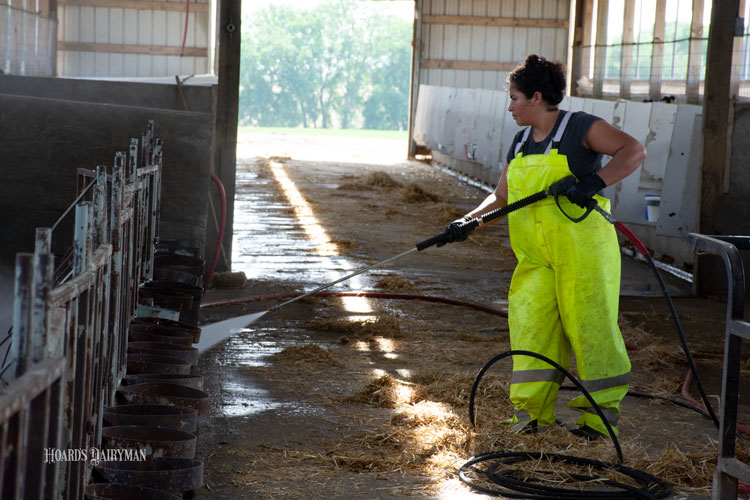
Ensuring the safety of farm workers takes multiple forms, and it’s helpful to remember the unique circumstances that may affect women on the farm. Over 30% of U.S. farm operators are women, and there are many more performing daily farm tasks, reminded Tina Kohlman, a University of Wisconsin dairy extension agent.
Kohlman talked with veterinarian Lindley Reilly about four areas where women could be at a heightened risk for injury and should take appropriate precautions.
Equipment: Reilly pointed out that when large machinery is being operated, women tend to be on the ground more often doing jobs such as hooking up the PTO or handling a skid loader. This can create issues because women may be shorter and not as visible from the cab of a combine or tractor. In these situations, it’s vital to communicate with all parties involved about where you will be and when you are moving. Also be sure to tie up long hair around equipment.
Animals: “You definitely, as a woman, can work around very large animals very successfully,” Reilly began. Everyone working around animals faces potential dangers, though. Being shorter and perhaps less physical can create additional risks, so utilize an effective restraint system and don’t work alone if possible. Be aware of the animals around you, and always have an exit strategy planned, especially in maternity areas where animals may be more aggressive.
Hormones: Most women are likely aware of the risks of handling prostaglandin (PGF) on the farm if they are pregnant. Just as in cows, PGF can cause abortions in humans. Some pregnant animals can also carry zoonotic diseases that may go unnoticed in the animal but cause abortions in humans; Reilly specifically noted that this can occur in sheep and goats. Be sure to share that you work on a farm with your doctors when you’re pregnant, especially because they might not realize the risks that could come with that. “I always recommend everyone be their own advocate, especially when it comes to your doctors and your risk on a farm,” she added. Veterinarians and other farm women can be helpful resources, too.
Mental health: Women tend to take on much of the mental weight of running the farm and caring for other responsibilities, Reilly described. “They don’t usually have a lot of outlets for that [stress],” she continued. “A lot of our rural women are fairly isolated or by themselves, and they don’t really have anyone to talk to, especially with fewer people in agriculture.” She encouraged those struggling with these feelings to ask for help and find someone to reach out to. If anyone is showing signs of anxiety or depression for more than two weeks, they should talk to their doctor.
Safety should be a part of every day on the farm, Kohlman summarized. These risks are not an inhibition, but they are necessary and imperative to keep in mind.








